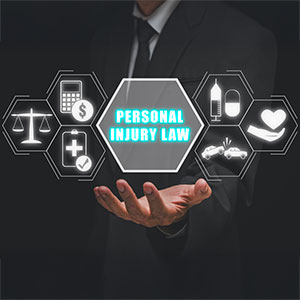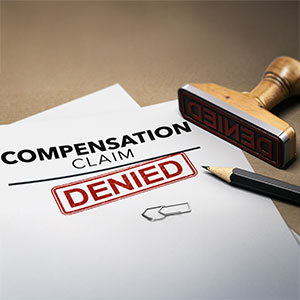Jury Should Consider Building Code Violation As Evidence of Negligence
Personal InjuryIn the case of Harold Krueger v. Quest Diagnostics, Inc., et al, Case Number 2D18-3823 (Fla. 2d DCA September 13, 2019), Florida’s Second DCA held that building code violations may be considered by the jury as evidence of negligence and that there is not a distinction between building codes for the purpose of “access” as opposed to those codes for the purpose of “safety.” Instead, the building codes were intended to protect the public in general.
Underlying Case
Mr. Krueger fell near a curb in a strip mall parking lot in front of Quest Diagnostics, where he had been earlier that day. Further, Mr. Krueger was elderly, disabled, and had parked in the handicap parking space closest to Questand was returning to his vehicle when he fell.
The lawsuit claimed that the owners of the strip mall negligently maintained the property by failing to provide a suitable “cut” into the curb that would allow a handicapped person direct access from the parking.
The case hinged upon the application of the Florida Accessibility Code for Building Construction that requires access from a handicap parking space and the accessible entrance to a business by means of the shortest accessible route. The lawsuit claimed that the curb was an impediment without a curb cut (essentially a ramp that is cut into a step) because a handicapped person would have to travel a much longer route to enter.
The trial judge in this case relied upon ADA (Americans with Disabilities Act) decisions to come to the conclusion that there was a difference between building code violations that addressed safety versus those that only addressed “accessibility.” The trial judge then excluded testimony regarding whether curb cut could have been placed in front of Quest considering work to the parking lot had been performed in 2012 and 2016 but the problem was not fixed (NOTE- the opinion does not say that the work performed would trigger a need to comply with the current code in effect at the time of the work).
The trial judge thereafter granted a directed verdict for the defense.
Code Violations Are Evidence Of Negligence
It is well established under Florida law that building codes may be considered by juries as evidence of negligence. The cases below will be helpful if you encounter this issue in your case:
- Spadafora v. Carlo, 569 So. 2d 1329, 1331 (Fla. 2d DCA 1990) (“[A] violation of the building code is evidence of a breach of the standard of care in a premises liability case against a commercial landowner.”)
- Lindsey v. Bill Arflin Bonding Agency Inc., 645 So. 2d 565, 567 (Fla. 1st DCA 1994) (“Because a ‘building code is designed to protect the general public rather than a particular class of individuals,’ a violation constitutes evidence of negligence . . . .” )
- Liberty Mut. Ins. Co. v. Kimmel, 465 So. 2d 606, 607 (Fla. 3d DCA 1985) (holding that evidence that a walkway “was built contrary to the South Florida Building Code” was “in and of itself evidence of negligence”)
This case is a reminder that the building code is there to protect the general public but yet noncompliance with the code does not mean the plaintiff will automatically win.
What You Need To Win Your Florida Premises Liability Case
The condition complained of must still be “unreasonably dangerous” and, if the condition has existed for a long time with no one being injured, then that evidence will also come into the trial according to other case law. That fact may or may not be persuasive depending on the circumstances. This is why the jury gets to decide what is negligence and what is not (the courts only determine where there is a legal duty and where there is not).
Likewise, you should also attempt to determine whether there was compliance with the code at the time of construction as well as if there was any work that was performed afterward that would have required code compliance. You will also need to hire an expert (usually an architect) to perform the appropriate code research and to help determine what code was applicable at any certain point in time.
Get Help For Your Florida Slip and Fall Case
If you or someone you know was injured in a Florida slip and fall incident, you should contact a Lakeland slip and fall attorney for a free consultation to determine the merits of your case. Cases are accepted on a contingency fee basis and there are no fees or costs unless money is recovered for you.


